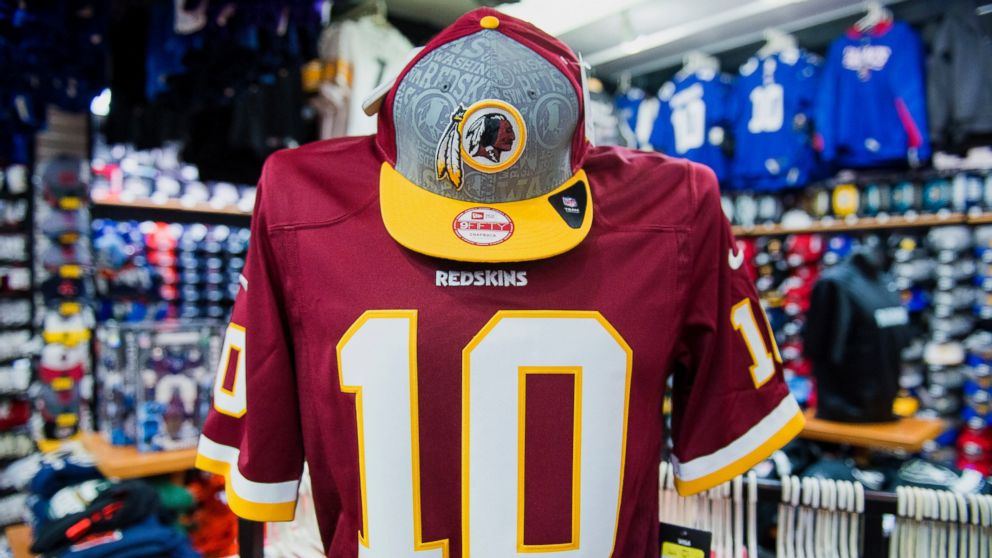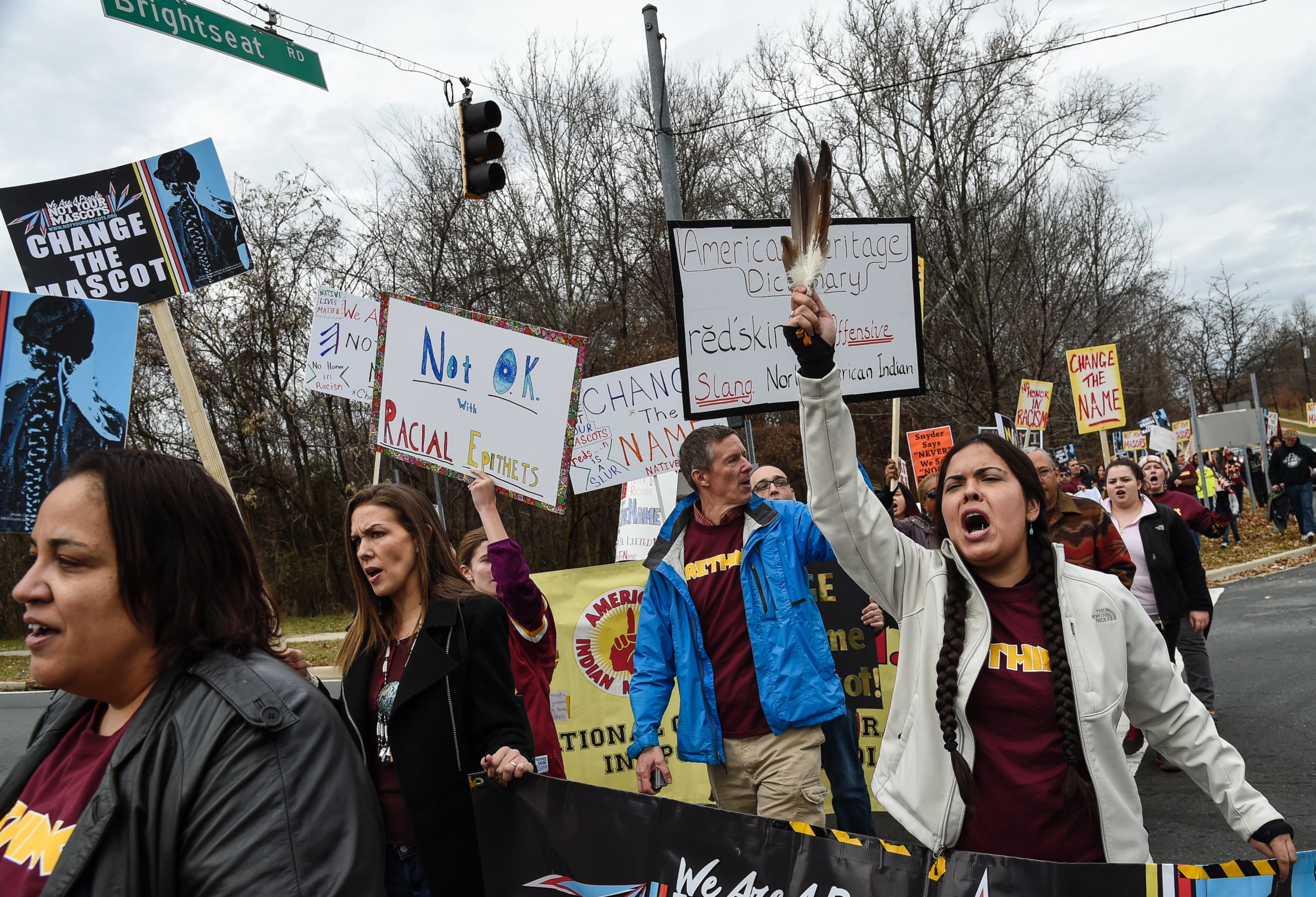Washington's NFL Team Asks Supreme Court to Consider 'Redskins' Trademark Name
Team wants court to weigh in on whether it can be denied trademark protections.

— -- Washington Redskins officials have asked the Supreme Court to potentially weigh in on the controversy surrounding the team’s name and whether it can be denied trademark protections on the grounds that it disparages Native Americans.
The NFL franchise is looking to challenge a July 2015 U.S District Court order to the U.S Patent and Trademark Office to cancel the team's trademark because the agency determined it is offensive.
That legal battle has been making its way through the court system, but the franchise is looking to get the high court’s attention now by possibly marrying its trademark battle to a similar legal fight over whether an Oregon-based Asian-American rock band can trademark its name: “The Slants.”

In a petition filed Monday, the team said if the Supreme Court takes up the Oregon band’s case, Lee v. Tam, it should hear its challenge at the same time.
The team’s lawyers argued in their brief that hearing both trademark cases at the same time would allow for the full range of issues to be considered at once rather than in a piecemeal fashion.
“The Team is better situated than Tam to address not only the vagueness and due process questions, but also the First Amendment question in Tam,” the team's lawyers wrote in their petition.
Last week, the Obama administration and the U.S Patent and Trademark Office asked the Supreme Court to review a December ruling from a federal circuit court that found that the patent office could not prevent "The Slants" from trademarking its name under the Lanham Act, which bars trademarking of “scandalous, immoral, or disparaging" names. The federal circuit court had ruled that preventing the band from trademarking its name violated the band's First Amendment rights.
The Redskins case is still before the 4th U.S. Circuit Court of Appeals, but the team's lawyers argue that if the Supreme Court agrees to hear Lee v. Tam, it should also hear the Redskins case; they argue that considering the cases together would allow the court to address the full range of legal issues involved.
Although the Supreme Court does not frequently agree to hear cases before lower courts have decided them, it does have that authority -- and the Redskins argue that the Supreme Court has frequently exercised that authority "when the consideration of complementary companion cases offers the best way to decide important questions of constitutional law."
The fight to retire the Redskins name is at least 40 years old and there is a lot of money at stake in the trademark case. While the team can still use the name, without trademark protections, anyone else would have the ability to sell merchandise using the name without compensating the franchise.
The team’s name has been a continuing source of controversy in recent years, but team owner Daniel Snyder has repeatedly said it is not offensive and that he has no plans to change it.
The debate has been picked up by politicians, and President Obama has publicly urged the Redskins to consider an alternative name.
“If I were the owner of the team and I knew that there was a name of my team -- even if it had a storied history -- that was offending a sizable group of people, I’d think about changing it,” Obama said told the Associated Press in October 2013.
ABC News' Kate Shaw contributed to this report.




